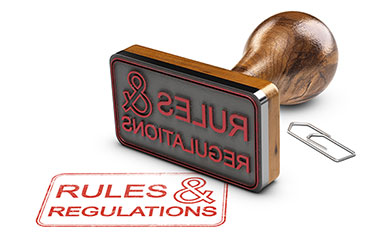 When you hire a financial advisor, you have the reasonable expectation that you will be able to rely on their advice.
When you hire a financial advisor, you have the reasonable expectation that you will be able to rely on their advice.
Unfortunately, financial advisor negligence and fraud do sometimes happen.
Your brokerage firm has a legal responsibility to put a proper supervisory system in place to protect you from financial advisor misconduct.
Indeed, the duty to supervise is one of the key components of securities regulation in the United States. Under federal law, most notably, Section 15(b)(4)(E) of the Securities and Exchange Act of 1934, brokerage firms are responsible for supervising their securities representatives.
Further, the Financial Industry Regulatory Authority (FINRA) has also enacted rules that put the onus on firms to be proactive in preventing, detecting, and stopping misconduct.
At Sonn Law Group, our securities fraud lawyers are committed to fighting for the rights and interests of investors across the nation. We want all investors to have a basic understanding of the duties that their brokerage firm owes to them.
For immediate assistance, please don’t hesitate to call our firm at (844) 689-5754 or send an online message today for a free consultation.
Here, we have put together a brief guide that explains FINRA’s supervisory requirements.
The FINRA Rules on Supervision
FINRA Rule 3110: The General Supervision Requirement
FINRA Rule 3110 is the general supervision requirement.
This rule requires registered brokerage firms to establish and maintain a reasonably well-crafted system to supervise the activities of individual representatives so as to ensure compliance with securities laws and industry regulations.
Under FINRA rule 3110, brokerage firms must have written supervisory procedures (WSPs) in place.
Collectively, a firm’s WSPs should address the supervision of:
- Transactions;
- Correspondence with customers;
- Internal communications; and
- Customer complaints.
Additionally, in order to satisfy FINRA’s 3110 rule, a firm’s WSPs must clearly describe which individuals will be responsible for ensuring compliance, what exactly each individual will do, and how they will document their work.
Written supervisory procedures should be individually tailored by each firm in order to meet their unique circumstances.
FINRA Rule 3120: Testing the System
FINRA Rule 3120 requires that all registered brokerage firms have an effective system of supervisory control policies and procedures (SCPs). Essentially, rule 3120 mandates that brokers must ‘test’ their own WSP system on a regular basis.
At least once per year, brokerage firms are required to test and verify that their current written supervisory procedures are adequate to ensure compliance with securities regulations.
Further, senior management at a firm should receive a Rule 3120 report from the compliance department once per year.
FINRA Rule 3130: Annual Certification
FINRA Rule 3130 requires the top-ranking executives at a firm to certify that their WSPs and SCPs are in compliance with securities industry regulations. Specifically, a brokerage firm’s CCO and CEO are responsible for approving such a certification.
The general purpose of FINRA Rule 3130 is to ensure that brokerage firm compliance staff are clearly communicating any issues with the actual business managers. The compliance department’s findings should be put into action and any ‘gaps’ in the supervisory system need to be addressed without delay.
Victim of a brokerage firm’s misconduct? Submit the short form below to schedule a free consultation today.
Failure to Supervise Claims
If you lost money due to the negligence or fraud of your financial advisor, you may have a valid failure to supervise claim against your brokerage firm. If your brokerage firm failed to follow any FINRA rules or regulations, the firm may legally liable for your losses.
Failure to supervise claims come in a variety of different forms.
Some of the most common examples include:
- Inadequate pre-hire screening practices;
- Inadequate training of securities representatives;
- Failure to effectively monitor the communications of individual brokers;
- Failure to effectively monitor customer transactions;
- Lack of sufficient reviews and inspections;
- Failure to put appropriate written supervisory procedures in place;
- Failure to follow up on suspected misconduct; and
- Failure to report certain transactions.
When brokerages firms fail to properly supervise their financial advisors, innocent investors are put at serious risk. Negligent supervision can lead to a variety of FINRA violations. For example, an unsupervised investment advisor may make unsuitable investment recommendations or engage in unauthorized trading.
In many cases, financial advisor misconduct is allowed to persist because of poor oversight. Investors deserve protection from their brokerage firm. If you believe that your broker-dealer failed to properly supervise its securities representatives, please consult with an experienced attorney.
Contact Our Broker Negligence Attorneys Today
At Sonn Law Group, our FINRA arbitration lawyers have extensive experience handling failure to supervise claims. If you believe that you lost money because of your brokerage firm’s failure to supervise its representatives, we can help.
To set up your free claim evaluation, please call us today at (844) 689-5754 or contact us directly through our website.
CONTACT US FOR A FREE CONSULTATION
Se Habla Español
Contact our office today to discuss your case. You can reach us by phone at 844-689-5754 or via e-mail. To send us an e-mail, simply complete and submit the online form below.

